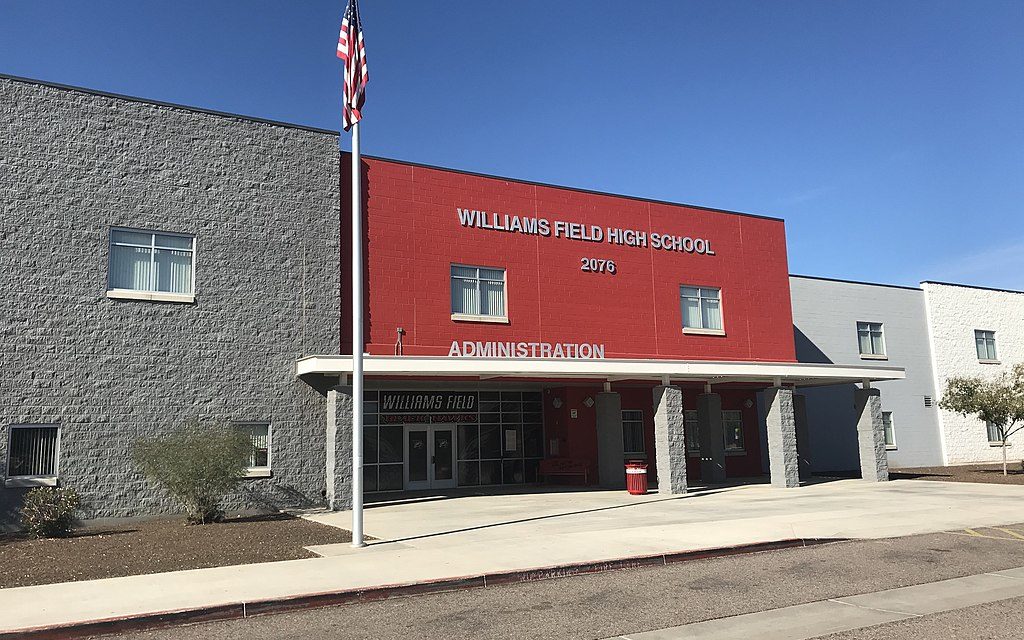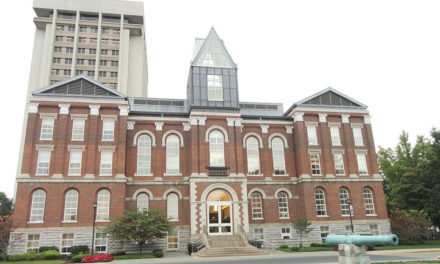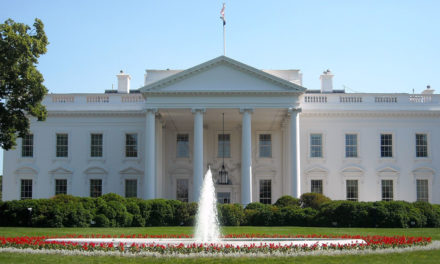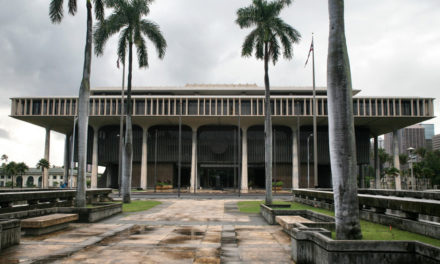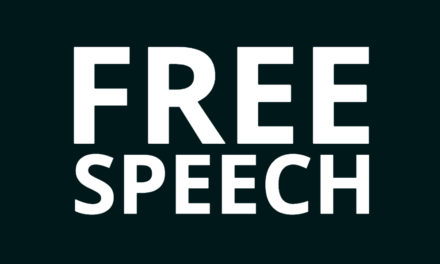A public high school in Gilbert, Arizona is coming under fire for discriminating against a student club that espouses conservative values of freedom, free markets and limited government.
Erin Remfrey is a student at Williams Field High School in the Phoenix suburb, and earlier this year she set about organizing a local student chapter of Turning Point USA (TPUSA), a national nonprofit organization founded in 2012 by conservative commentator Charlie Kirk.
Remfrey encountered some stiff opposition along the way.
Some students, faculty and administrators expressed hostility toward the club’s viewpoint, with one teacher even pledging to do whatever it took to prevent the group from becoming recognized on campus. Two potential faculty sponsors were intimidated into withdrawing. Ultimately, two more sponsors were found, and the school officially recognized the club.
That didn’t end Remfrey’s troubles, according to her attorneys at Alliance Defending Freedom (ADF) who are representing her as well as the club. In a letter to the school district, ADF Senior Legal Counsel Greggory R. Walters listed several items of censorship imposed by the high school on TPUSA communications, including requirements that:
- The group disable the comment function on its social media posts;
- The group submit an agenda for each of its meetings for advance approval by school officials; and
- A faculty sponsor monitor the group’s social media posts.
The letter notes that the high school does not require other clubs at the school, such as the Fellowship of Christian Athletes or the Black Student Union, to comply with the same requirements.
According to ADF, that differential treatment violates not only the First Amendment’s free speech clause, but also the federal Equal Access Act, a law that requires a level playing field – i.e., equal treatment – for student clubs in order to avoid just the type of discriminatory requirements allegedly being applied to TPUSA by Williams Field High School administrators.
According to the U.S. Department of Education guidelines (found at www2.ed.gov/policy/elsec/guid/secletter/groupsguide.doc) explaining the Equal Access Act, the law requires more than just allowing student clubs to meet.
“Access refers not only to physical meeting spaces on school premises, but also to recognition and privileges afforded to other groups at the school, including, for example, the right to announce club meetings in the school newspaper, on bulletin boards, or over the public-address system,” the guidelines state.
The explanation continues, “The Act requires the school to treat each group like other, similarly situated groups, and prohibits imposing additional requirements on some student-run groups that are not imposed on all others. A school would violate the Act by, for example, requiring a gay-straight alliance to change its name, requiring it to have a faculty adviser when faculty advisers are not generally required for all other groups, or imposing different requirements for the group’s posters, leaflets, and announcements than the school places on other groups’ promotional materials.”
The ADF letter requests not only immediate removal of the extra conditions placed on the TPUSA club, but also that the school district adopt a policy prohibiting the district’s schools, administrators and teachers from discriminating against and censoring a club because of the club’s religious, political, or philosophical viewpoints, or other content of its speech.
The letter warns that failure to comply with those requests will result in ADF advising their clients of “other avenues for vindicating their rights.” That, of course, could include litigation.
Parents should always be concerned when their local public schools attempt to censor unpopular viewpoints. Such censorship can be directed at values and biblical teachings that parents want their children to publicly live out and defend where necessary.
Public education can pose all sorts of challenges for parents. That’s why Focus on the Family and Family Policy Alliance have partnered together to launch a new education resource: Back to School – for Parents. The 124-page, downloadable PDF offers guidance on nine different areas, helping parents protect their children in the classroom; in school clinics and counseling offices; in restrooms and locker rooms; in school libraries; and on school-owned computers and research databases.
Picture from Jedijoe82 Wikimedia Commons.

